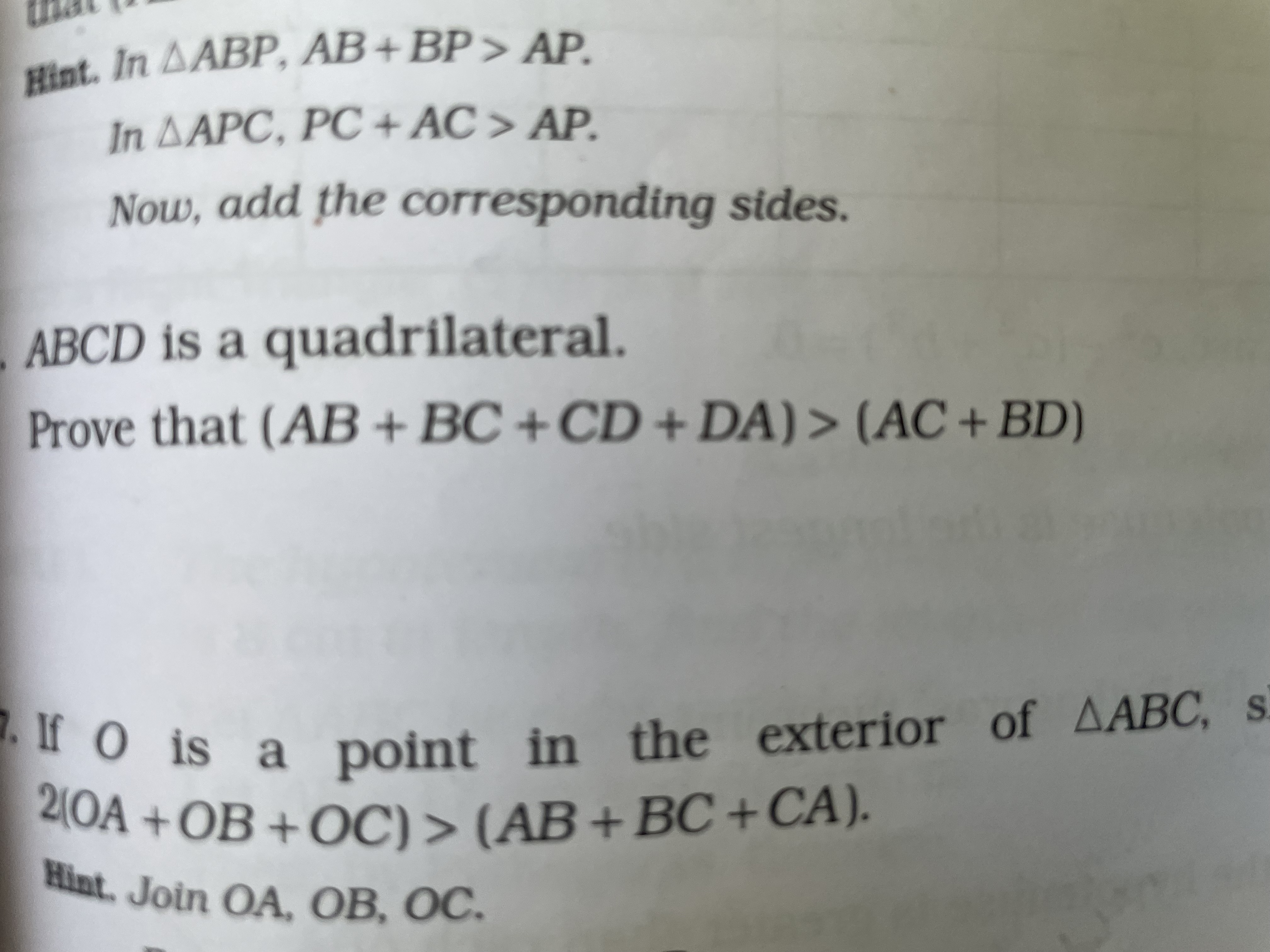If O is a point in the exterior of triangle ABC, prove that (AB + BC + CD + DA) > (AC + BD).

Understand the Problem
The question is asking us to prove a mathematical inequality involving the sides of a quadrilateral. It requires understanding the properties of lines and points within geometric figures, specifically focusing on length comparisons between segments formed by points in relation to the quadrilateral.
Answer
\( AB + BC + CD + DA > AC + BD \)
Answer for screen readers
The proof shows that ( AB + BC + CD + DA > AC + BD ).
Steps to Solve
- Understanding the Configuration
We are given a point ( O ) outside triangle ( ABC ) and need to relate the lengths of segments formed by ( O ) to the lengths of the quadrilateral ( ABCD ).
- Using Triangle Inequalities
In triangle ( AOB ): $$ AB + AO > BO $$
In triangle ( BOC ): $$ BC + BO > OC $$
In triangle ( COD ): $$ CD + CO > OD $$
In triangle ( DOA ): $$ DA + DO > AO $$
- Adding the Inequalities
Add all four inequalities together: $$ (AB + AO) + (BC + BO) + (CD + CO) + (DA + DO) > (BO + OC + OD + AO) $$
This simplifies to: $$ AB + BC + CD + DA + (AO + BO + CO + DO) > (AC + BD) $$ where ( AC + BD ) represents the segments connecting the points across the triangles.
- Establishing the Relationship
Rearranging the terms shows: $$ AB + BC + CD + DA > AC + BD $$
Thus, we have proven that: $$ AB + BC + CD + DA > AC + BD $$
The proof shows that ( AB + BC + CD + DA > AC + BD ).
More Information
This result is significant in geometry and shows how points outside a triangle relate to its internal structure. It can help in understanding more complex geometric relationships and inequalities.
Tips
- Misapplying the triangle inequalities by forgetting to include all three sides.
- Confusing the segments formed when adding inequalities.
AI-generated content may contain errors. Please verify critical information